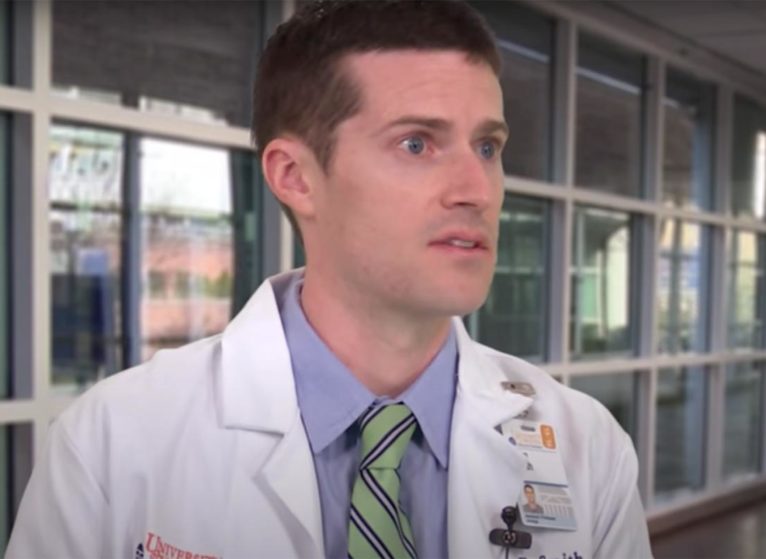Urologist Ryan Smith, MD, treats a variety of conditions related to men's health, including:
Smith is especially interested in male infertility and other fertility-related conditions and procedures.
Meet a UVA Urologist
We asked Smith to talk more about his passion for men's health and treating male infertility.
1. Why did you become a doctor?
It is an immense privilege to help others and to be entrusted with their health care. The idea of being part of a diverse team of individuals passionate about helping all people, regardless of circumstance, strongly appealed to me. My decision to become a doctor was also driven by values instilled in me by my faith and family.
2. Why did you choose your specialty?
I really enjoyed the combination of medicine and surgery. Urologists have developed and pioneered some of the most advanced technology in medicine and we utilize robotic, endoscopic and microsurgical techniques.
We see a diverse group of patients from young healthy couples struggling with infertility to patients with advanced cancer. I was also fortunate to learn from some passionate leaders and educators in urology at UVA.
3. What’s one thing about your specialty that might surprise people?
I knew early on that I wanted to help couples struggling with infertility and urologists are a vital part of that team. When a couple undergoes a fertility evaluation, male factor infertility is present in at least 50% of cases. As Urologists, we are experts in male reproductive medicine and surgery.
4. What’s the most exciting thing/research happening in your field right now?
Right now at UVA Urology, we have several areas of groundbreaking research. One collaborative project involves developing a new diagnostic test in male infertility and a way of selecting the best sperm for assisted reproduction.
We also have a trial using a silicone band technology to evaluate and quantify environmental and occupational exposures in men struggling with infertility.
Also, we have recently started a clinical trial investigating the use of low-intensity shockwave therapy to treat erectile dysfunction.
Struggling with Infertility?
We treat both female and male infertility.
5. Where did you grow up?
I grew up in Zionsville, Indiana, which is a small town just outside of Indianapolis.
6. Who is your inspiration or hero?
One of my heroes is Dr. Martin Luther King, Jr. Dr. King was courageous, selfless, eloquent, intelligent, faithful, persistent, determined and he defined leadership. He brought hope to humanity and a dream of a world that is more fair and just. He still reminds us that, “The time is always right to do what is right” and, “Darkness cannot drive out darkness. Only light can do that.”
7. What’s your favorite thing about working at UVA?
The people! I really believe that no matter your job, the people make all the difference. We are fortunate at UVA, within Urology and the entire institution, to have outstanding people who are the best at what they do.
I think one of the biggest things for patients to expect is really we're treating a couple. One of the unique things we have is a really close relationship with the reproductive endocrinologists at UVA and in the community. We work very closely together as a team. We're very collaborative in taking care of the couple as a whole. I think they appreciate that and that there's good communication between the two. The most rewarding part for me is following a couple through their journey in having a baby and being able to assist in that process. Obviously, the end result, hopefully, is a child, which there's really no greater gift than that.



One of the best Doctors and a genuinely all around great person! It was a privilege to work with him.